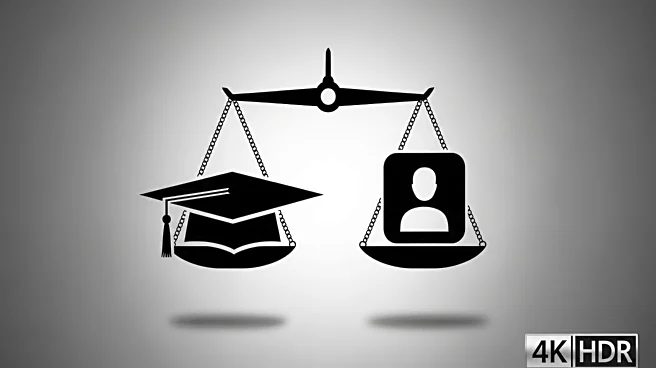What's Happening?
Florida Atlantic University (FAU) has placed art history professor Karen Leader on administrative leave following her social media comments related to the assassination of Charlie Kirk, a right-wing activist and founder of Turning Point USA. The university's president, Adam Hasner, announced the suspension, which has sparked controversy and debate over free speech rights. Leader's posts did not directly reference Kirk's assassination but highlighted his controversial statements and positions. The suspension has drawn criticism from free speech organizations and the FAU College Democrats, who argue that the action is an unjust retaliation against Leader's freedom of expression.
Why It's Important?
This incident underscores the ongoing tension between free speech rights and institutional responses to controversial public statements. The suspension of Professor Leader raises questions about the limits of academic freedom and the role of universities in protecting or restricting speech. The case has attracted attention from free speech advocates who argue that public university professors have the right to speak on matters of public concern without fear of retaliation. The outcome of this situation could have broader implications for how universities handle similar cases in the future, potentially affecting faculty members' willingness to engage in public discourse on contentious issues.
What's Next?
The university has not yet responded to requests for comment, and it remains to be seen how the investigation into Leader's social media activity will proceed. Free speech organizations and academic groups are likely to continue advocating for Leader's rights, potentially leading to legal challenges or policy reviews at FAU. The case may also prompt other universities to reevaluate their policies on faculty speech and social media use, especially in politically charged contexts.
Beyond the Headlines
The suspension of Professor Leader highlights the broader cultural and political divides in the U.S., particularly regarding the interpretation and application of free speech rights. The incident reflects the challenges faced by academic institutions in balancing the protection of free expression with the need to maintain a respectful and inclusive environment. It also raises ethical questions about the role of social media in shaping public perceptions and the potential consequences for individuals who engage in public discourse on controversial topics.










